Teaching yourself Japanese isn't easy, and let's face it, it takes a large amount of time, effort, and dedication to make noticeable progress. After coming home from a long day of school or work, sometimes the last thing you want to do is sit down at a desk with another textbook. Wouldn't it be more relaxing to just play some video games?
There are games out there designed to teach you Japanese. Most of those games only offer the basics of grammar and vocabulary, but they certainly aren't the only games out there that can supplement your studying. Some of your favorite video games may hold within them the ability to become a teaching tool and can become a legitimately fun way to study.
Games Made to Teach You
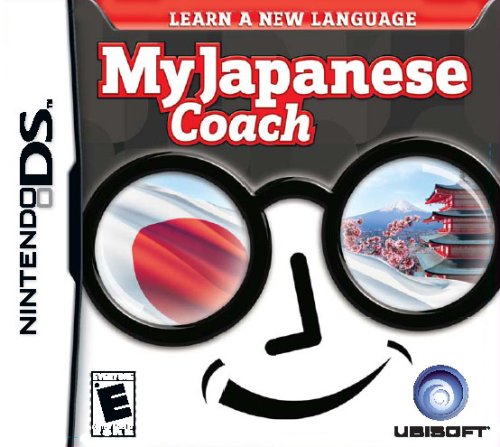
First, I'd like to mention My Japanese Coach, a Japanese learning game released for the Nintendo DS in 2008. If you're not familiar with the My Coach series, they are a bunch of self-learning and self-help games that range from learning languages to losing weight. There is even one that's supposed to help you quit smoking.
The game starts off with a placement test, but don't be fooled, this is definitely a game for beginners. It will teach you the basics: hiragana, kana, starting grammar, etc, but it only has about 100 lessons total and hasn't really been updated since it's release.
One of the major problems with this game is that some of the kanji require you to use the wrong stroke order to pass them. When the lead programmer's response to this was, "With thousands of characters in the dictionary, there were bound to be some incorrect strokes that would get overlooked," instead of suggesting a patch correcting the problem, they've chosen to ignore it. So, I can't recommend it for advanced, or even intermediate members. And while stroke order mistakes may seem like a trivial matter, using correct stroke order is extremely important if you're serious about learning Japanese. (You'll have a horrible time using a traditional or electronic dictionary if you get them wrong.)
Otherwise, if you're willing to double check the information you're getting, this can be a decent way to start out. If you like word searches, matching, and multiple choice games, this may be a fun way to get you into Japanese, but can you really call this a game?
My Japanese Coach may call itself a game, but what I listed above can't really be considered gameplay. Instead of more examples like this, the following are real games that you can play to learn but ALSO enjoy for the games that they are.
Listen While You Play

Change the language settings! You may not know this but a lot of the games you're already playing may have Japanese language options. Depending on the game, players can change the spoken language into Japanese with English subtitles, or even better, Japanese with Japanese subtitles. This is possible for quite a few modern JRPGs (for the non-game savvy: Japanese Role Playing Games).
One of the best examples of this is Ni No Kuni, which came out in the US in 2013 for the Playstation 3, and was developed by Studio Ghibli. You may know them from such classics as Princess Mononoke, Spirited Away, and any of the other awesome movies they've been churning out since the 1980s.
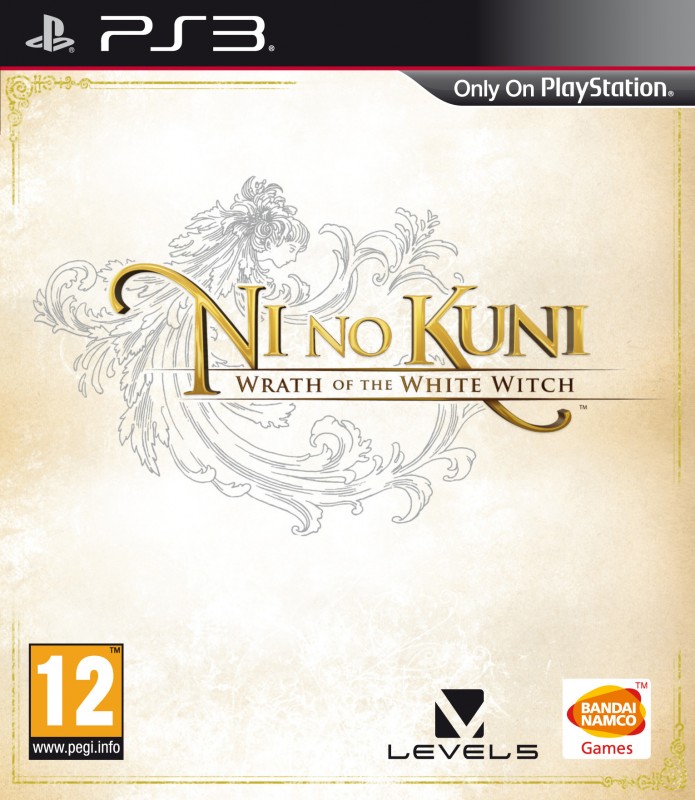
This whimsical and highly entertaining game offers English and Japanese voice tracks as well as English subtitles. (The only downside being the English subtitles are for the English version – but you can take advantage of that.) So while you're enjoying this epic and colorful adventure with Oliver, Drippy the Lord of the Fairies, and all of their friends, you can also be brushing up on your Japanese skills. One of the best things about using this game in particular for study is that it is absolutely bursting with puns. Character, town, and creature names, not to mention good old jokes, are all chock-full of these eye-roll worthy play on words. They can really help you learn what's malleable in the Japanese language. Not to mention there are fairy-tale references all over the place.
This may sound daunting, but don't worry, these aren't cryptic Japanese idioms like 猿も 木から 落ちる / Even monkeys fall from trees. No, it's actually much easier than that. In the first area of the new world that Oliver is thrust into, the town is called Ding Dong Dell (ゴロネール 王国) and the king is a giant cat names King Tom Tildrum XIV (ニャンダール), otherwise known as His Meowjesty, who speaks to himself in the third person.
Just reading the English names should give you an idea, but when you listen to the Japanese voice track you can hear what the Japanese equivalent to these puns are. It makes you think, helps you put things together, and really makes you laugh. Instead of just reading literal translations, you are able to see the connections the localization team was able to make. The game is seriously dialogue heavy too, meaning there is plenty of material available to you. This kind of studying is pretty hard to find in a book or in a classroom, but it can really open up your mind, so take the plunge!
Just don't blame me when the game breaks your heart.
Similar Games: Final Fantasy X/X-2 HD Remaster (2014), Xenoblade Chronicles (2012). The Japanese Version of Persona 4 (2008) is also a great game for learning more natural Japanese but requires a Japanese game and a Japanese console.
Reading With The Nintendo 3DS

Games that are not all about listening, but more about reading and doing things, can have the written language changed to Japanese as well. After all, we all have our favorite silent protagonists. One of these games that is still fairly new is Animal Crossing: New Leaf / とびだせ どうぶつの森, which came out in Japan in 2012 and America in 2013.
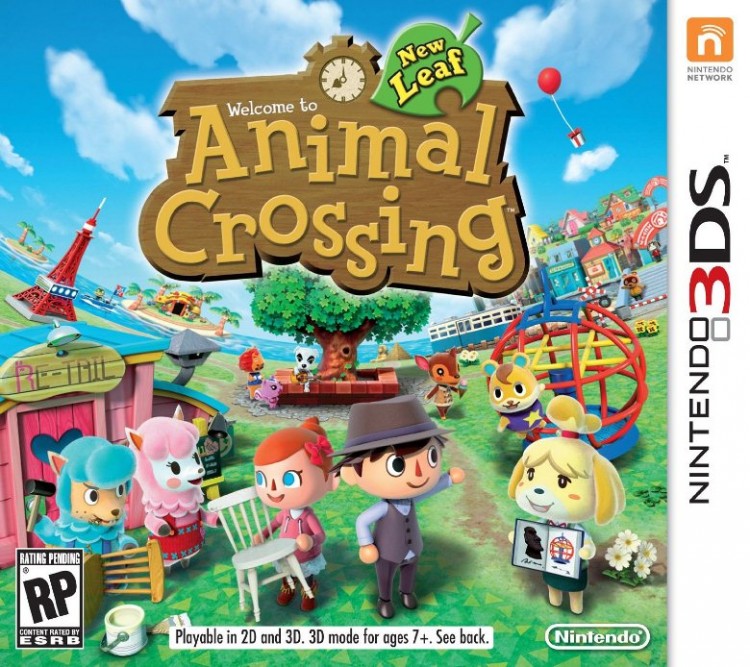
This is a cute, and honestly, terribly addictive game that, if you buy the Japanese version for the Japanese Nintendo 3DS, can be a really great study tool. This is a laid back type of game in which you are suddenly tasked into being the mayor of a town. You interact with the animals that inhabit it, catch fish, bugs, and sea creatures, and do your best to improve the town until it's the best it can be! (Which is really whatever you want it to be.) For those familiar with previous versions of the game, this latest installment has everything you love and more!
The great thing about using this game to learn Japanese is that it isn't difficult. You play when you want, learn at your own pace, and take away from it what you put in. All of the bugs and fish you can catch are real creatures, this means you'll be learning the actual Japanese names for them. You can also bring them to the museum where you can read a short description of each creature you catch.
The real benefit to playing this game in Japanese is the conversations you have with the animals in your town. Different animals have different personality types ranging from cranky, to snooty, to lazy, to uchi. That's right, uchi, which is commonly translated as "big sister-type" in English, because that's how they treat you, like they're you're older sister.
Like Ni No Kuni, ACNL has puns. These can be a bit more difficult because you don't have any English subtitles, but they are still fairly simple.
For example, when you catch a nibble fish, you read this:
- ドクターフィッシュを 釣り 上げた! 川のエステティシャン!
- I caught a doctor fish! A river esthetician!
In Japanese a nibble fish is known as a "doctor fish!"
This isn't the same joke that's made in English because, well, it just wouldn't make any sense. In fact most of the jokes are different based on which language you're playing in. So even if you're familiar with the English version of the game, you'll be able to have a fairly new experience in Japanese, and you'll have to figure out the puns for yourself.
Similar games: Pokemon X & Y (2013), Bravely Default (2014). *These two games have Japanese language options in the NA versions, so you won't need to worry about a Japanese game or 3DS for them.
PC Games Exist Too

If you don't have any new consoles, or you simply don't feel like spending money, you can always hop on your computer and play Slime Forest Adventure. There are three different versions of this JRPG style game available and the demo version is absolutely free.
First, let me warn you, the art is pretty abysmal and there is no sound. However, this game does lend itself to the simple RPG style of fight monsters > save princess. You won't be playing a variation on flash cards and calling it a game.
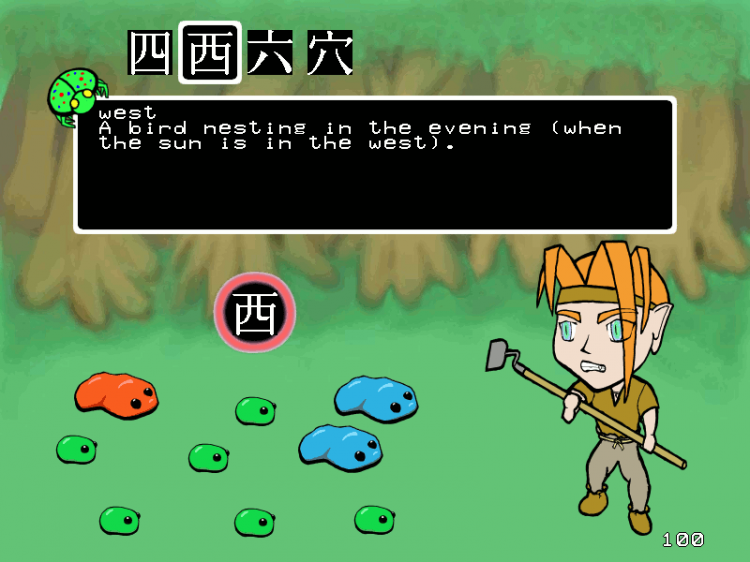
In the game you fight through different areas, defeating slime monsters by typing in the readings of the hiragana, katakana, or kanji on the slimes. It's simple, useful, and did I mention free? Of course you can choose to pay for an upgrade to the grade school Kanji version or the Common Use Kanji version. Both of these offer side quests and more vocabulary and kanji.
For those of you who aren't fooled by the games that use matching and word searches (those aren't real games!), this could be something to try.
Dating Sims for Your iPhone

No modern game list would be complete without mentioning at least one phone app. Moe Academy is a dating sim-type gaming app available for free in the itunes app store. Though, a quick word of warning, this is very much a dating sim, so if you aren't already a fan of those, you probably won't like this game. It's pretty directly targeting straight male players, and doesn't really offer much for anyone else, unless you're playing it ironically.
However, the game does give you lessons for vocabulary words and time based mini games that differ based on which girl you're playing them with. While the lessons aren't much more than a list of words with the Japanese and English equivalents, the games are pretty entertaining. Picking the right meaning for a word will let you shoot ghosts with arrows or enjoy festivals with girls, and if you get a high score you could get a love confession from the girl you played with. The higher lessons do cost money to unlock, so if you really like this style of game, there are currently twenty different courses with levels ranging from beginner to what they call advanced plus.
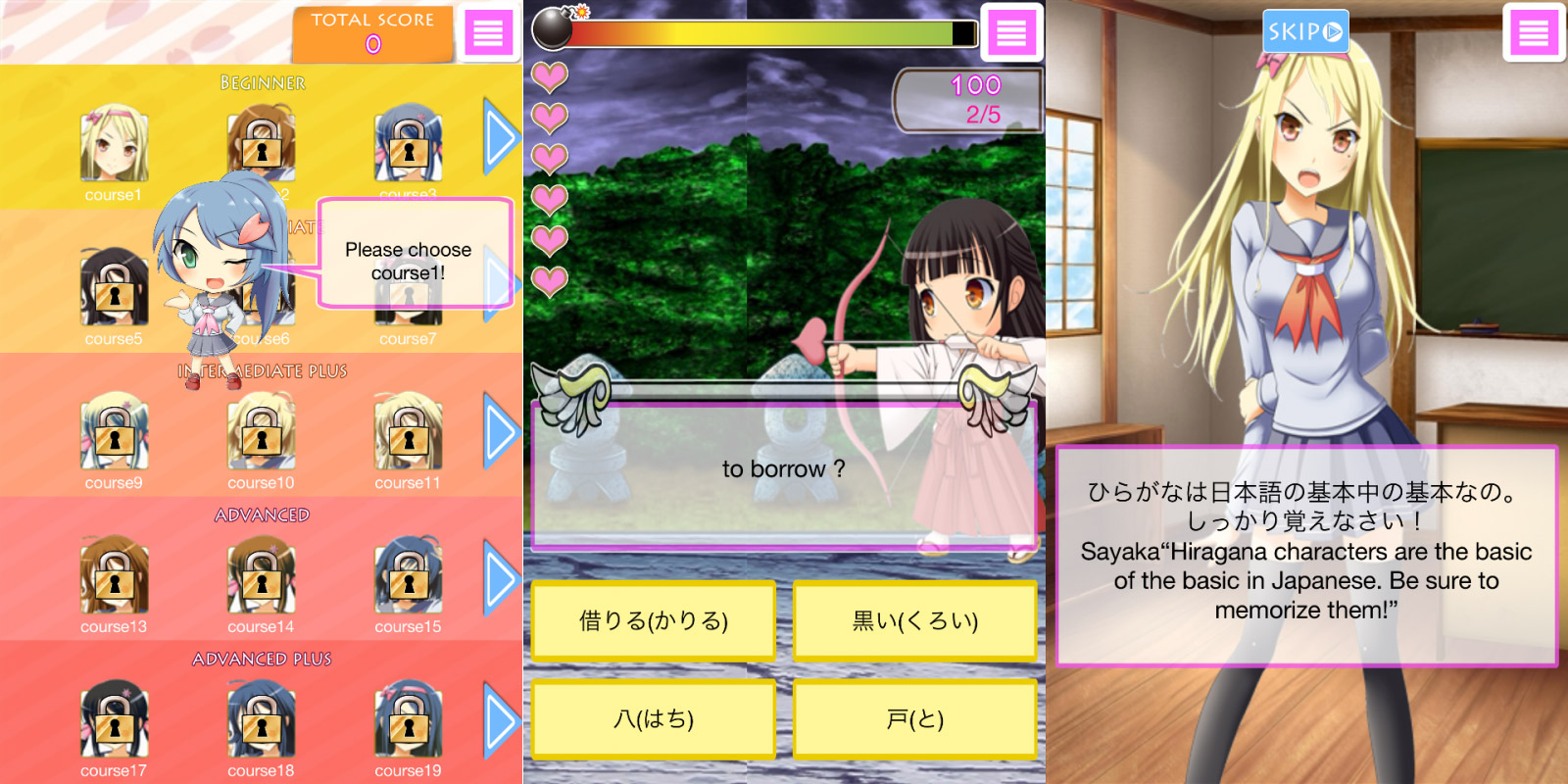
The game also offers both Japanese and English text for all of the conversations you have with the characters, including your own thoughts. Sometimes the sentences in both languages can be a bit strange, the translations into English aren't always the greatest, but they are there for people who want to use them as a study guide as well. The conversations are also skippable, so if they're too corny for your liking, you can go straight to the lessons/reviews instead.
If you are going into this game without any prior Japanese knowledge you may be out of luck. It teaches you hiragana and katakana but uses kanji and no furigana (kana readings above the kanji) in all of the conversations, and the lessons/reviews seem to be more of a refresher than a real teaching tool, but that doesn't mean the game doesn't have merit. The art and the music in the game is actually really well done, and it does feel like a real dating sim. But again, this game isn't for everyone.
Learn Japanese with Koe (声)
Koe (声) is a game that was successfully backed on Kickstarter. It is set up as a JRPG and is all about learning Japanese. They're calling it communicative language learning and it looks really interesting. This means you'll be hearing and reading Japanese, something that Slime Forest Adventure certainly doesn't do.
One important aspect of this game is that they say they're putting a focus on actual gameplay. That means it will be more than flashcards and multiple choice, unlike My Japanese Coach. Koe promises to contain all the traditional JRPG elements we know and love, like a story, random encounters, weapons, and a turn-based battle system. That's more than any Japanese language focused game has been able to brag about before.
To learn more about Koe, check out their Kickstarter page.
Update: It's been officially released! Check it out.
"Let's Play" In Japanese
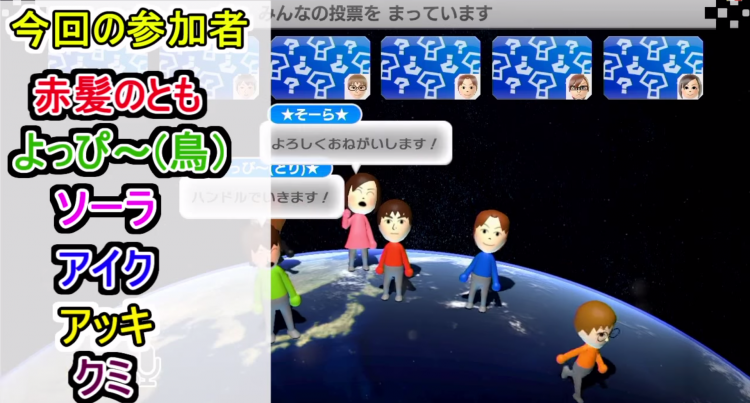
For those of you who prefer to watch games being played for you, there is something out there for you too! While online streaming of games has been growing in popularity over the last few years, especially on sites like twitch.tv and youtube, more and more Let's Plays have been coming out of Japan.
For those who don't know, a Let's Play or 実況プレイ in Japanese, is a video in which someone plays through a game with commentary. It's not the same as a walkthrough, because the point of watching isn't to help you get through the same game yourself, but to enjoy it and the personality of the person making and hosting the video. There are quite a few Japanese Let's Players and watching them can give you both the joy of playing numerous video games and help you study and learn Japanese.
Watching Let's Plays can be beneficial in a lot of ways. First, you can hear Japanese that isn't scripted. This isn't textbook Japanese, it's how real people talk, and that's an important thing to learn how to understand and do if you want to be able to use more than just polite and bland Japanese. If you don't have a way to get to Japan to experience this type of banter for yourself, Let's Plays are probably the closest thing you can get to a real, colorful conversation with friends. This is also a great alternative for people who aren't fans of Japanese talk shows.
The next awesome thing is that you can pause, rewind, and relisten to the things you hear. Some Let's Players even edit their videos to add in subtitles like you'd see in talk shows, which can help you be sure of what you just heard. While watching these videos you can pause when you hear something you don't know, use an online dictionary to look it up, and then easily return to the video and completely get what's going on.
There are literally hundreds of games to choose from! If you only like first person shooters, there is a Let's Player for you. If you love hardcore action role playing games, there is a Let's Player for you. What about games with friends like Mario Kart and Minecraft? Yup, they exist. There are so many different types of people, games, and experiences out there to help you with your Japanese.
Here are some great Let's Players on youtube. Feel free to check them out!
Language Options Are Getting Better
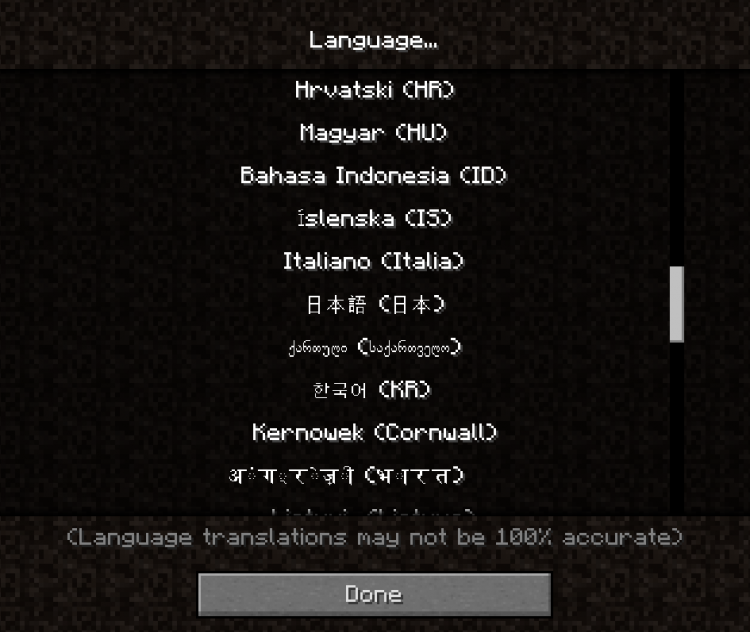
Over the last few years there have been some pretty great improvements to learning Japanese from games. With international editions of games coming out, like Final Fantasy X/X-2 HD Remaster, players outside of Japan are finally able to change their language settings to be in Japanese. Even some games not coined "international" like the new Pokemon games are having simultaneous release dates, and suddenly languages are an option, not a preset or region-locked to your console.
Hopefully with games like Koe coming out in the next year or so, more advanced games will follow their lead. If Koe does well, we might even see a sequel aimed at advanced language learners. Our future could see more interaction, more options, and better resources. Maybe in the near future we will see an MMORPG where you focus on speaking Japanese with other people to finish quests. Instead of killing spiders in caves, you have to talk your way through. You never know where the future of games will take us!
(If there are any game developers reading this, make me that MMO!)
Tips and Suggestions
- Keep a notebook handy while you game. If you hear a new word or expression you don't understand, pause, jot it down, and look it up when you're done. Then you can add those words to the list of things you're already studying.
- Don't just rely on subtitles. Paying attention to English subtitles while listening to a Japanese voice track can be really helpful, but try to wean yourself off of them. Subtitles should be a reference and if you catch yourself reading and thinking in English while you play a game, then it doesn't really matter that the voice track is in Japanese.
- Try to recognize the speech patterns and dialects different characters use while they speak to one another. You can do this whether you're listening or reading in a game. Being able to recognize emotions and personality types from the way someone speaks is a great skill to have.
- Repeat what the characters are saying aloud, or if you're playing a game without sound, try to speak as you read. A major problem of self-taught language learners is in practicing verbal communication skills, and even students in a classroom may not be getting the enough time to practice speaking. Copy the inflection and tone of the characters you're playing. Don't worry about who can hear. They'll be impressed by your mad Japanese skills!
- Don't make playing games too much of a chore! Remember, this is supposed to be a fun way to learn. An exercise for your brain. If you go at it too hard, you can tire yourself out quickly. Pace yourself. If you're the kind of person who likes to marathon games, you may get overloaded and end up forgetting quite a bit of what you learn. Learning a language is going to take time, the more you cram, the more likely it is you'll forget.
Above all, remember to have fun! And be sure to let us know if there are any other games you've used to study recently.
